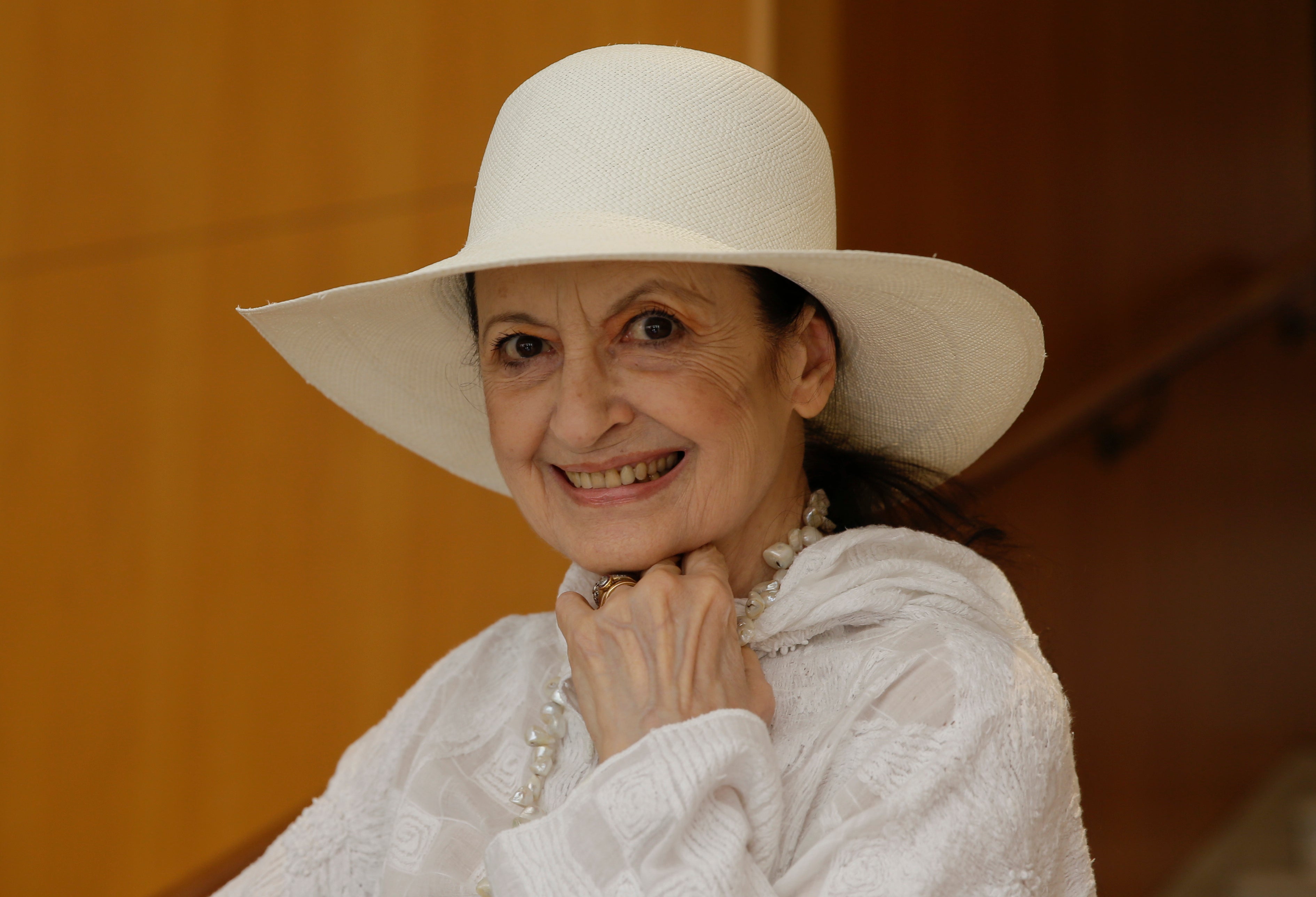Italy's Carla Fracci, La Scala prima ballerina, dies at 84
Carla Fracci, an Italian cultural icon and former La Scala prima ballerina who formed a memorable partnership with Rudolf Nureyev, has died at her home in Milan

Your support helps us to tell the story
From reproductive rights to climate change to Big Tech, The Independent is on the ground when the story is developing. Whether it's investigating the financials of Elon Musk's pro-Trump PAC or producing our latest documentary, 'The A Word', which shines a light on the American women fighting for reproductive rights, we know how important it is to parse out the facts from the messaging.
At such a critical moment in US history, we need reporters on the ground. Your donation allows us to keep sending journalists to speak to both sides of the story.
The Independent is trusted by Americans across the entire political spectrum. And unlike many other quality news outlets, we choose not to lock Americans out of our reporting and analysis with paywalls. We believe quality journalism should be available to everyone, paid for by those who can afford it.
Your support makes all the difference.Carla Fracci, an Italian cultural icon and former La Scala prima ballerina renowned for romantic roles alongside such greats as Rudolf Nureyev and Mikhail Baryshnikov, died Thursday at her home in Milan She was 84.
The La Scala theater announced her death with “great sadness,” without giving a cause. Italian news reports said she had been fighting cancer.
The Milan theater recalled the “fairytale rise” of the daughter of a tram driver who, through “talent, obstinance and work became the most famous ballerina in the world, has inspired generations of young people, and not just in the world of dance.”
“Carla Fracci was a cardinal figure in the history of dance and that of La Scala, but also a point of reference for the city of Milan and Italian culture," the theater said in a statement.
Fracci was born in Milan on Aug. 20, 1936, and spent World War II with relatives in the countryside to escape the frequent bombardment of the industrialized Lombardy capital. In a recent interview with Sky TG24, Fracci described her younger self as a “farmer,” who knew nothing of the theater or the world of dance “much less those little shoes.”
But after the war, an observer remarked on her “grace and musicality,” recommending she try out for La Scala’s academy.
She was accepted at age 10, riding her father's tram each day to the academy, and graduated in 1954, at age 18. Her first stage appearance was in 1955 with other graduating ballet students at the close of a staging of Bellini’s “La sonnambula” conducted by Leonard Bernstein, directed by Luchino Visconti and starting Maria Callas.
She got her first break substituting for French dancer Violette Verdi in “Cinderella” the same year, and by 1958 had risen to the role of prima ballerina.
Her global fame spread immediately, with invitations to the Royal Festival Hall, followed by doors opening in the United States, even as she maintained a central role at La Scala. She was most identified with the role of “Giselle " which she danced with Nureyev and Baryshnikov as well as Danish star Erik Bruhn.
Later partners included La Scala's own Roberto Bolle, who remembered Fracci for her “human generosity."
She last danced at La Scala in 2000, in the role of Luce in “Excelsior.” She was invited back in January of this year to teach a masterclass on “Giselle,” which was broadcast on La Scala’s social media channels and is part of a documentary by RAI state television.
“It was very moving to be back at La Scala, after more than 20 years," she told SKY TG24.
Fracci is survived by her husband of 57 years, theater director Beppe Menegatti, and their son, Francesco Menegatti.